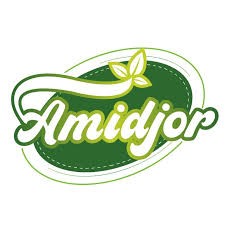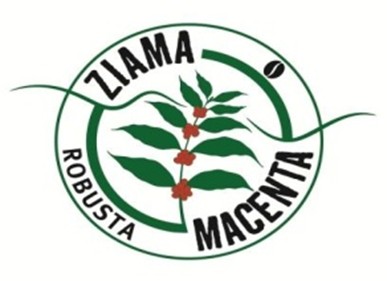Amidjor is a company specialized in agri-food production, processing, and training.

Robin studied computer science and mathematics. Passionate in aquaculture, he first ran an integrated farm comprised of tilapia and catfish , in addition to rabbits and chicken. In 2022, Robin was awarded for his contributions to climate change adaptation and resilience across Africa as one of the winners of the African Youth Adapt Challenge during COP27. He was also recently nominated for the Founder of the Year Awards (FOYA), Africa, in the category of Agripreneur of the Year under 30. Robin actively connects with stakeholders and partners in the sustainable agriculture/aquaculture space and is in involved in workshops, incubators and initiatives that promote sustainable food systems.

Type: Private Limited Company
First Year of Operation: 2018
Employees: The management team at Kisumeo Organics Company Limited is made up of full-time employees and hired experts on an on-call basis
CEO: Robin Ndung’u
Mission: To attain all year round sustainable aquaculture production and supply ability through enhancing small-scale farmers towards the best use of climate smart technology and provision to both the consumers and a reliable market of high quality aquaculture products
Vision: To lead the way towards eradicating hunger and malnutrition by empowering smallholder farmers in Africa to create sustainable and climate resilient aquatic food systems
Business Model
Beginning its operations in 2018 and incorporated in 2020, Kisumeo Organics develops the aquaculture and mariculture value chain by supporting smallholder farmers to create sustainable and climate resilient aquatic food systems. The company was created after Robin discovered the potential to farm crawfish as a profitable business, due to the quick reproductivity of the species and its niche value on the market.
The aqua-tech company leverages artificial intelligence to grow crustaceans in freshwater and ensures production all-year round, enabling a consistent supply of premium seafood products in all seasons. The application of a climate-smart approach has been critical, since fishermen are experiencing dwindling yields in aquaculture due the impacts of climate change including changes in temperature, weather patterns and rainfall patterns. Kisumeo Organics’ operations are based on three farms in Kenya, where the crawfish production cycle takes place via a pond, dam and aquaponics system. Additionally, by means of a franchise model, Kisumeo Organics trains farmers to produce crawfish and supplies them with high quality, selective crawfish fries and offers them buy-back agreements.
Relationship with Smallholders
Kisumeo Organics works closely with stakeholders in the aquaculture and mariculture industry. Links to formal and informing training and extension services are facilitated to customers and contracted farmers whom the company treats as potential future suppliers of crawfish. The training involves several aspects, ranging from pond, dam and aquaponics system design and maintenance; the handling of eggs and fries; hatching of eggs and larvae management; feeding and feed formulation and juvenile and grow out management. Kisumeo Organics also ensures that practices are maintained in controlled spaces, to guarantee the sustainability and the environmental safety of the activity.
To reinforce the training with business opportunities, Kisumeo Organics is investing to secure reliable markets for the products of its out growers, in addition to those coming from its own farm operations. Moreover, the company has partnered with a chef who prepares meals, and they make deliveries for ready-made crawfish to sensitise the market towards accepting a new product and learning how to cook with crawfish. To complete the logistics required for its operations, Kisumeo Organics also manages the storage and transportation of produce, of which is taken to Isinya for processing and value addition.
Products Covered and Markets
Kisumeo Organics operates across multiple aquatic value chains including crawfish, shrimp/prawn and lobster farming. The main products include:
• Fresh/live crawfish
• Frozen whole crawfish and crawfish tails
• Brood stock from selective breeding
• Craylings/fries from the hatchery
Kisumeo Organics Limited also adds value to products. It processes crawfish flesh is to make crawfish powder, meanwhile crawfish shells are repurposed and processed to make livestock feed. They are awaiting certification that will enable mass export of products to Nigeria and Cameroon
Innovations: Milestones and Expansion Plans
Kisumeo Organics has developed their business model based on circularity that enables profitable and sustainable feed processes. The crawfish of Kisumeo Organics mainly feed on black soldier fly, which itself feeds on the organic waste from production processes. The flesh and shells of the crawfish, which are not consumed, are also processed respectively into crawfish powder and protein-rich animal feed. As the scale of production increases, Kisumeo Organics plans to continue repurposing the waste and taking advantage of the beneficial sources of minerals, including calcium and magnesium, that can be recovered through this circular economy perspective.
To company also evolves to meet the demands of the market. For example, in response to the desire of the Chinese market for a meatier crawfish, Kisumeo is working with research partners to enable the advancement of its species to have a higher meat to shell ratio.
Automation and integration with an e-commerce site is one of the priorities going forward for Kisumeo Organics. Using the $100,000 grant awarded to Kisumeo Organics from the African Youth Adapt Challenge, plans to invest in an automated hatchery are underway. With this commercial-scale hatchery, Kisumeo Organics plans to work with 2,000 farmers in the next two years, and 5,000 farmers in the next five years. The objective is to increase production outputs and begin to tap into the export market.
The company also continues to fundraise and is seeking equity financing to support this project.
Success Factors and Lessons Learned
Considering the niche role of crawfish farming in Kenya, the company has continuously learned from trial and error and learning from global experiences to develop their processes. The company is overcoming challenges concerning the adoption of seafood products by sensitising the local market and considering consumer trends that desire healthy alternative proteins to meat, while developing research partnerships to improve the final product.
Kisumeo Organics promotes continual education, training and skills development among the stakeholders of the company’s value chain. As part of its training, it teaches farmers about the benefits of crawfish in aquaponic farming and how to add value to the produce. The company has adopted a role for connecting smallholder farmers, sharing knowledge and resources to allow the crawfish segment of the industry to grow in an inclusive direction, where partnerships and mentorships are encouraged among stakeholders along the value chain.
Currently, Kisumeo Organics Limited is in official partnership with the Tokyo University of Agriculture, Japan, which is in liaison with Jomo Kenyatta University of Agriculture and Technology, Kenya. Together they conduct research on crawfish farming in Kenya to establish an advanced crawfish breeding program for small holder farmers and are working on developing the whole value chain, including exploring nutritional benefits for consumers. Kisumeo Organics is also working with the Institute of Development Studies in the United Kingdom.
Through the creation of a reliable market for high quality products, stable income generation and sustainable food production, Kisumeo Organics is building a positive repertoire with customers and small scale farmers. The members of its franchise, of whom are majority women and youth, are equipped to be advocates of the aquaculture and mariculture industry.
Robin has recently attended the Kenya Small Scale Farmers Forum Annual General Meeting (AGM) and The International Institute for Environmental Development (IIED) workshop on locally led food systems transformation, for which he was unanimously elected as the National Organizing Secretary. He also represented Kisumeo Organics at the 2023 Agri Africa Expo at the Kenyatta International Conference Center (KICC) in Kenya.
Resources
https://kisumeoorganics.com/
https://thefishsite.com/articles/kenyas-crawfish-farming-pioneer-kisumeo-organics?s=09
https://foodforafrika.com/2022/02/18/aquaponics-farmer-robin-njau-unlocks-new-markets-one-crayfish-at-a-time/
https://twitter.com/kisumeo_organic?lang=en
https://twitter.com/njau_robin
Additional Resources
Join our Forum to discuss and explore how to encourage innovations across agricultural value chains to transform food systems in African, Caribbean and Pacific countries and beyond, promote sustainable agriculture & leverage investments. Share insights, ask questions, and collaborate on innovative solutions for a greener future.
Recent Business Profiles

Amidjor is a company specialized in agri-food production, processing, and training.

ADECAM is a community-driven organisation in Guinea dedicated to protecting, promoting, and developing the Ziama-Macenta Geographical Indication coffee, while supporting smallholder producers...

Tac Maz Sustainable Ventures is a climate-smart social enterprise in Malawi supporting smallholder farmers through sustainable poultry and horticulture production.

Bono Salus is a Zimbabwean woman-led agribusiness specializing in urban hydroponic farming of microgreens.

The Nut Place is a Nigerian food innovation company that processes locally grown edible nuts into gluten-free, nutrient-dense products to improve nutrition, reduce post-harvest losses, and promote...